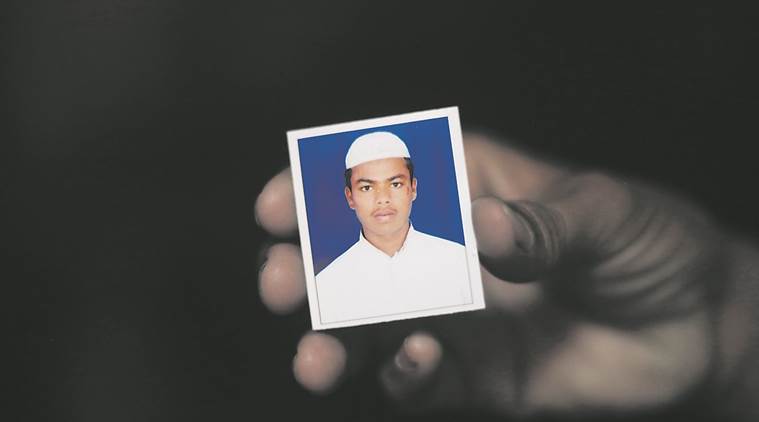Last week, Makram Khan, a British Muslim, was stabbed to death in a vicious hate crime in London. Immediately, the entire political class condemned it in the strongest words and a probe was launched into similar crimes at the highest levels. Significant sections of the mainstream media focused on the brutality and on the bereaved family, sensitively, and at considerable length. Horrible as it was, the event received the attention it deserves.
 |
| This should lead to serious soul-searching in India where Junaid, a young man, looking forward to Eid , was first abused and then brutally knifed to death while his brother lies wounded in a hospital. |
Two things stand out especially. First, such responses came in the wake of a series of severe Islamist terror attacks on London, and a large-scale one at Manchester, in very quick succession. Each was followed with calls for harmony — from religious organisations, from police forces and politicians, from large sections of urban publics. Second, and more important, the attack by a lone individual was immediately classified as terrorism, and is now being investigated within that format. Admittedly, this is a new departure in British civic and political life, partly shaped by the larger matrix of changes brought about by a marked leftist turn in Labour politics that Jeremy Corbyn, a long time anti-racist activist, has recently initiated.
This should lead to serious soul-searching in India where Junaid, a young man, looking forward to Eid , was first abused and then brutally knifed to death while his brother lies wounded in a hospital. The cause? They are Muslims, hence beef eaters, hence Pakistanis, and hence easy and natural target for butchery. Note the logic: All beef eaters and all Pakistanis — and by extension, therefore, all Muslims — are meant for slaughter.
Nor is it the logic of a few drunken oddballs, as it is made out to be. The killing has been preceded by so many others, of Dalits and Muslims, accused of cow slaughter or beef consumption, that we have simply lost count and memory of them. If they were calibrated by Far Right Hindu outfits in the past — nobody enquired into their possible organisational or mobilisational links — such bloodlust has now pervaded very large numbers of ordinary people, drunk or sober. It is a part of a broader pattern where a certain group proclaims something as punishable by death and torture — be it in the name of Bharat Mata, or cow or temple, or nationalism — and violence ensues. Atrocities have been naturalised in the past few years, they are a far too familiar landscape, part of the new normal.
Do we dare draw a contrast between political responses to the two deaths? At an NDTV debate, BJP spokesperson Nalin Kohli remarked that our prime minister does occasionally condemn such violence. That no corrective action follows from his observations seemed, after all, a small matter to him. An exalted figure like the PM cannot possibly react to such daily trivialities. We live in strange times. Modiji embraced President Trump in the US, and we do not know that Trump abstains from beef. The Swachh Bharat campaign does not provide poor women with toilets, but when they are forced to relieve themselves in public places they are photographed by civil servants who allegedly beat another Muslim man to death when he objected to the gross abuse.
Have we had enough? Even some of us, even a few of us? Could we initiate a movement, asking that hate crimes be legally reclassified as acts of terror and be treated on par with them? May we demand that the entire Opposition — if it still deserves that name — unite under this demand immediately? After all, we have a useful precedent in a country which has, in recent times, suffered many more terror attacks than we have, and which has refused to discriminate between terror and terror.
The writer retired as professor, Centre for Historical Studies, JNU
|
